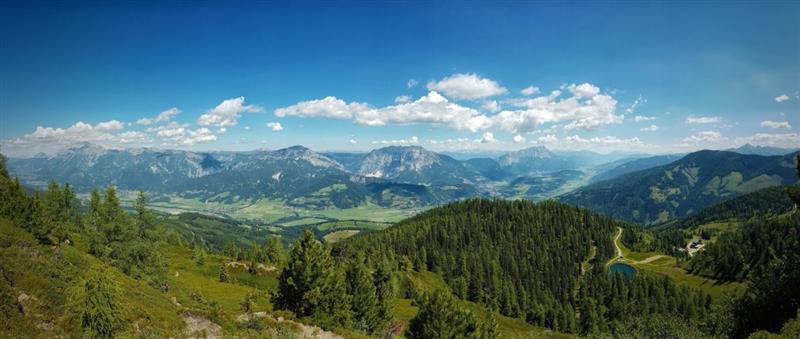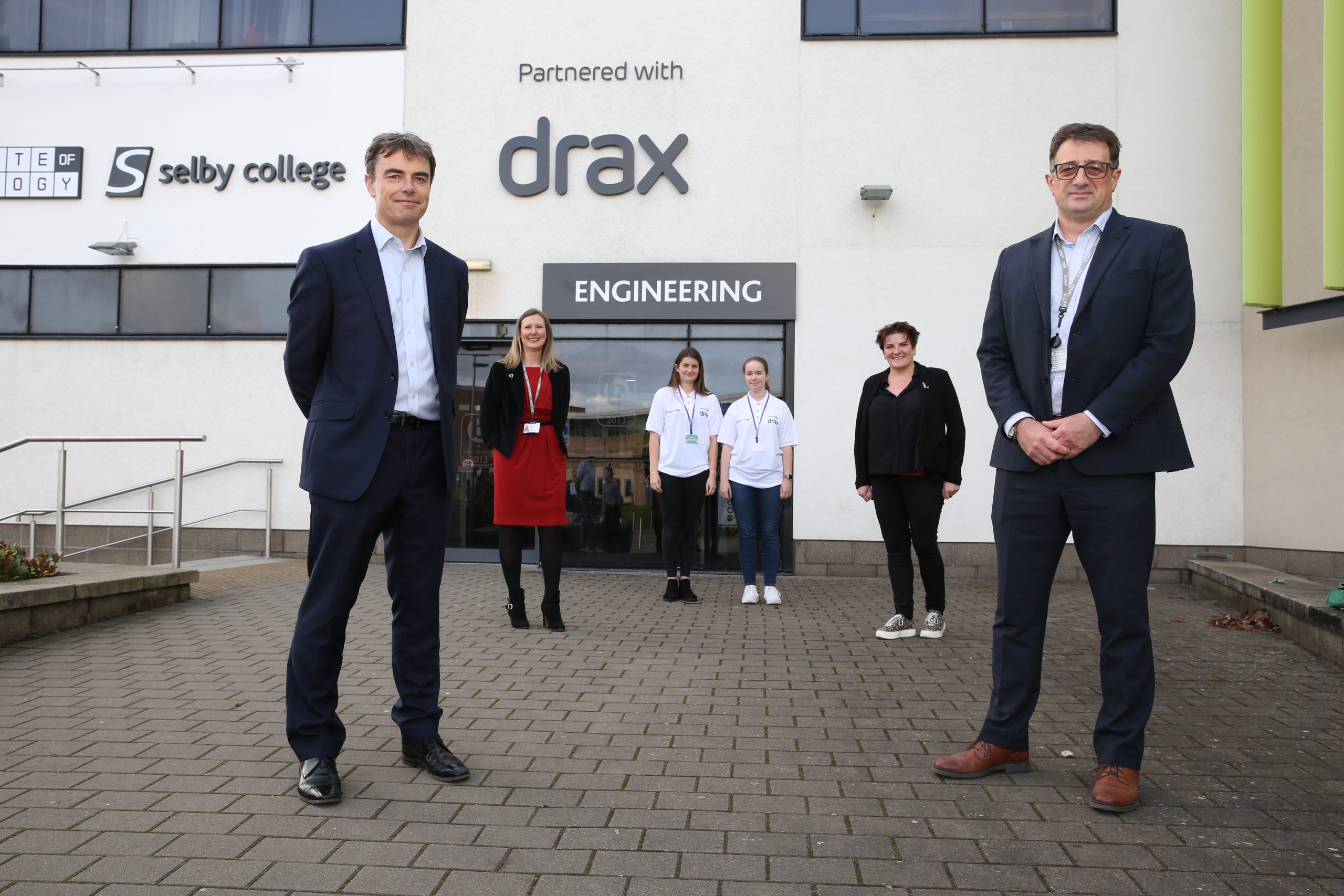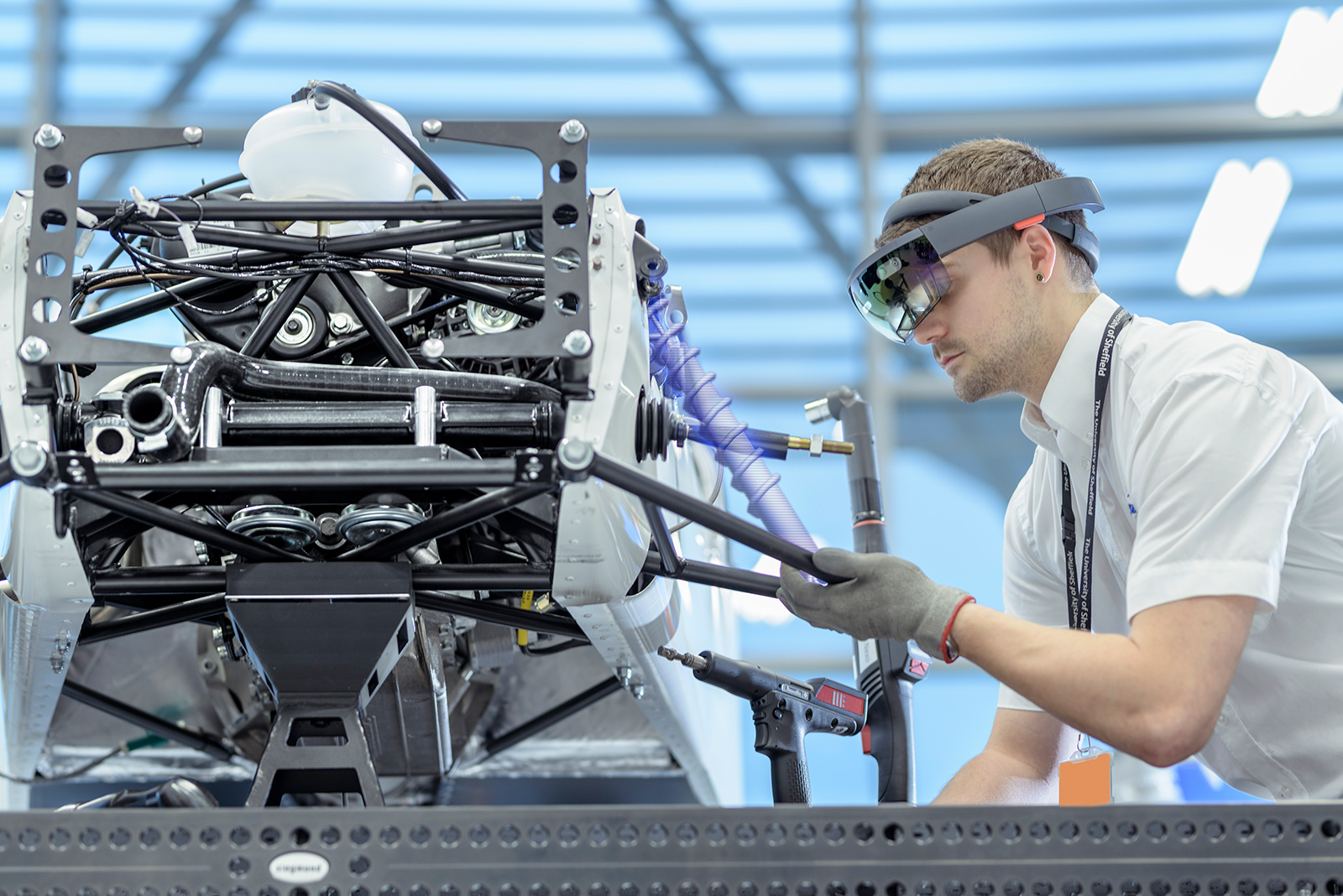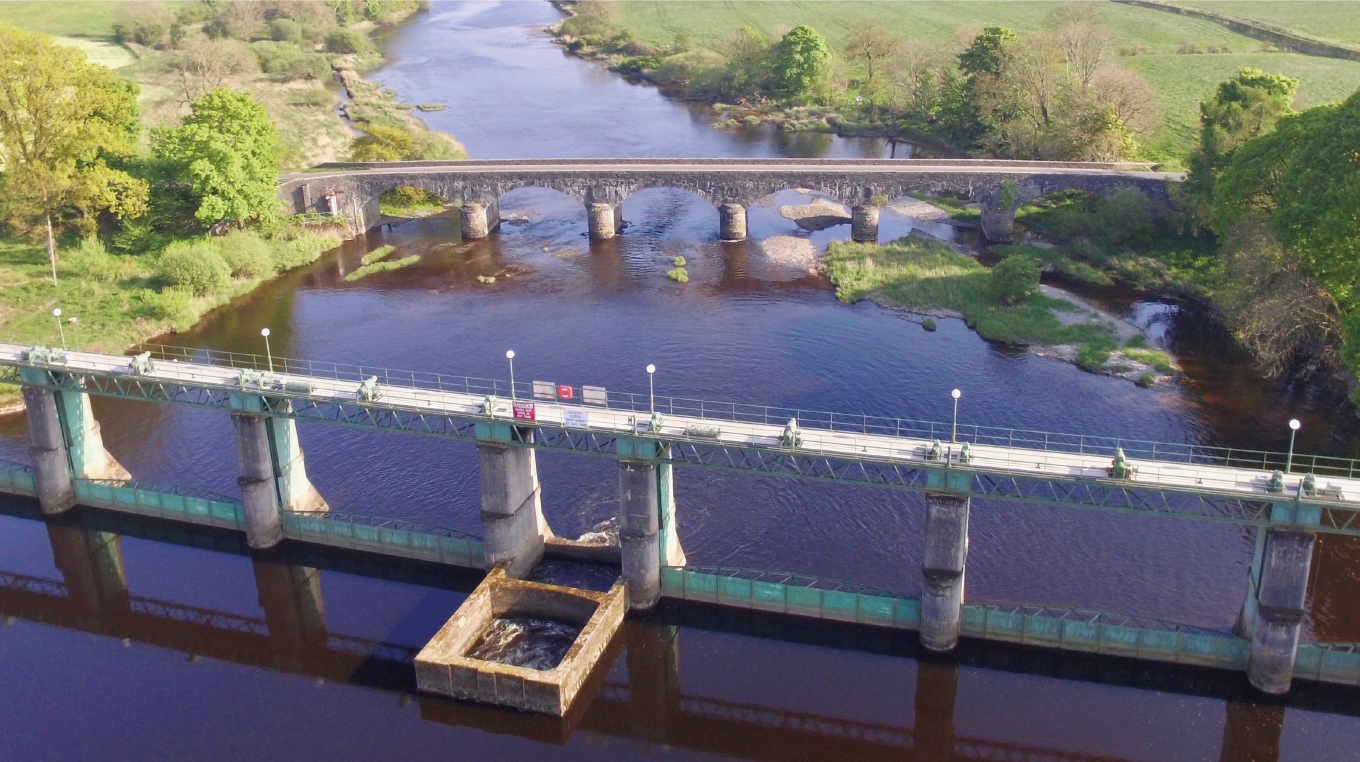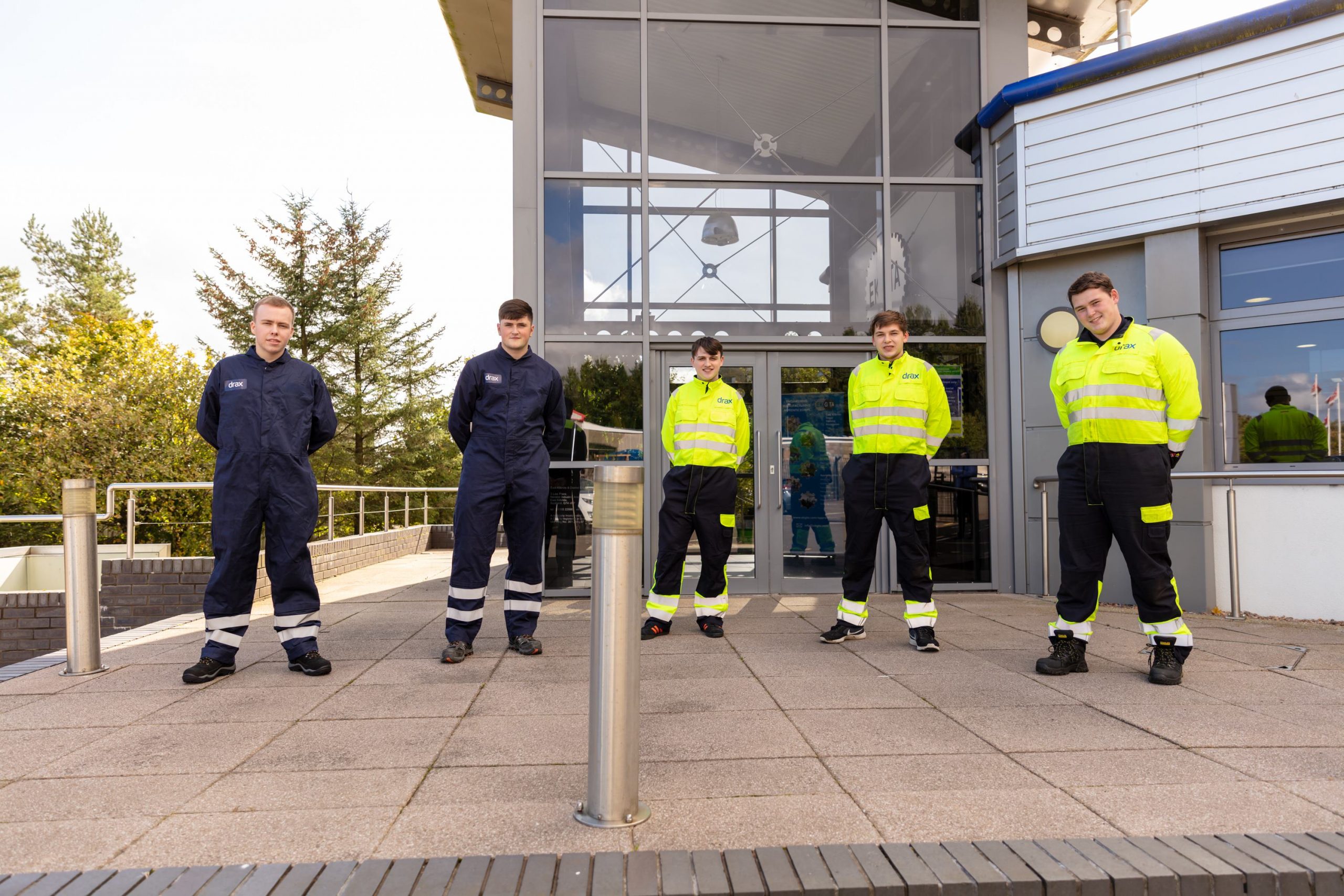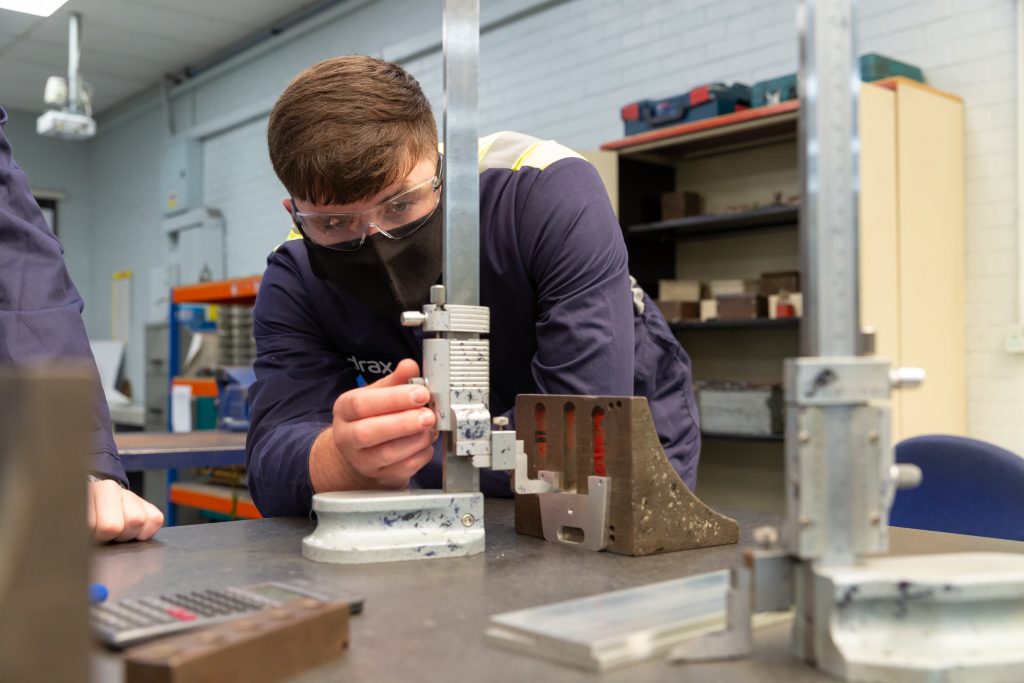
The projection at the UK’s largest single site renewable power generator should be visible from miles around to commemorate those involved in the two world wars and other conflicts.
Bruce Heppenstall, Plant Director at Drax, said:
“Drax has a proud history of supporting the Royal British Legion’s Poppy Appeal. By projecting the symbol of remembrance on to one of our cooling towers we are aiming to show armed forces personnel throughout the generations the gratitude we feel for the sacrifices they’ve made.
“Covid restrictions mean it’s going to be difficult for people to come together safely at remembrance services and for charities to fundraise in the usual way this year. By Drax marking the occasion with this projection, we hope local communities will still be able to pay their respects and support the Royal British Legion, which provides lifelong support to our armed forces community.”

Bruce Heppenstall, Plant Director at Drax and Alex Wood Warehouse Manager and ex-Army Staff Sergeant in front of the cooling tower.
Drax, near Selby in North Yorkshire, will use an outdoor projection unit, to project the images onto one of the power station’s 114m tall cooling towers from 6pm to 10pm on Remembrance Sunday, November 8 and Armistice Day, Wednesday November 11.
Alex Wood, Warehouse Manager at Drax is an ex-Army Staff Sergeant, who organises the annual Poppy Appeal at the power station. He said:
“I’m proud to work for an organisation that supports the Royal British Legion. There are at least 20 ex-armed forces personnel working at Drax, as well as several Army Reserves. The help the Legion provides for veterans like me is fantastic, with many of us relying on this support to help transition to civilian lives.”
As well as the projection, Drax is also donating £1,000 to the Poppy Appeal and will be laying wreaths at war memorials local to its operations across the UK.
Drax has the capacity to generate enough renewable electricity for four million households, and has measures in place to keep its employees safe during the Covid-19 pandemic, ensuring they can continue to safely operate the power station, which is critical national infrastructure, generating the power millions of homes and businesses rely on.
Featured image caption: A Poppy projected onto a cooling tower at Drax Power Station during a ‘practice run’ which took place this week ahead of Remembrance Sunday’s projection.
ENDS
Media contacts:
Ben Wicks
Media Manager
E: ben.wicks@drax.com
T: 07761 525 662
Megan Hopgood
Drax Group Media Intern
E: Megan.Hopgood@drax.com
T: 07936 350 175
Editor’s Notes
For more information about the British Legion’s Poppy Appeal and details of how to donate, please visit the website.
Cooling tower facts:
- Each of the 12 cooling towers at Drax are 114m tall and 93m in diameter at the base.
- You could fit the Statue of Liberty inside each one.
- The dimensions of the cooling towers are such that if they were scaled down to be the size of an egg, the thickness of the cooling tower walls would be the same as an eggshell – so whilst the walls could be viewed as being quite delicate, the hyperboloid shape of the cooling towers gives them strength to withstand harsh weather conditions. The ones at Drax date from almost 50 years ago when the first half of the power station was built and came into operation in 1974.
- The power station works by using boilers to heat water and make high pressure steam, which is used to spin turbines and generate electricity. The steam is then cooled inside the cooling towers, and the water is returned to the boiler to be heated again.
About Drax
Drax Group’s purpose is to enable a zero carbon, lower cost energy future and in 2019 announced a world-leading ambition to be carbon negative by 2030, using Bioenergy with Carbon Capture and Storage (BECCS) technology.
Its 2,900-strong employees operate across three principal areas of activity – electricity generation, electricity sales to business customers and compressed wood pellet production.
Power generation:
Drax owns and operates a portfolio of flexible, low carbon and renewable electricity generation assets across Britain. The assets include the UK’s largest power station, based at Selby, North Yorkshire, which supplies five percent of the country’s electricity needs.
Having converted two thirds of Drax Power Station to use sustainable biomass instead of coal it has become the UK’s biggest renewable power generator and the largest decarbonisation project in Europe. It is also where Drax is piloting the groundbreaking negative emissions technology BECCS within its CCUS (Carbon Capture Utilisation and Storage) Incubation Area.
Its pumped storage, hydro and energy from waste assets in Scotland include Cruachan Power Station – a flexible pumped storage facility within the hollowed-out mountain Ben Cruachan. It also owns and operates four gas power stations in England.
Customers:
Through its two B2B energy supply brands, Haven Power and Opus Energy, Drax supplies energy to 250,000 businesses across England, Scotland and Wales.
Pellet production:
Drax owns and operates three pellet mills in the US South which manufacture compressed wood pellets (biomass) produced from sustainably managed working forests. These pellet mills supply around 20% of the biomass used by Drax Power Station in North Yorkshire to generate flexible, renewable power for the UK’s homes and businesses.
For more information visit www.drax.com/uk







